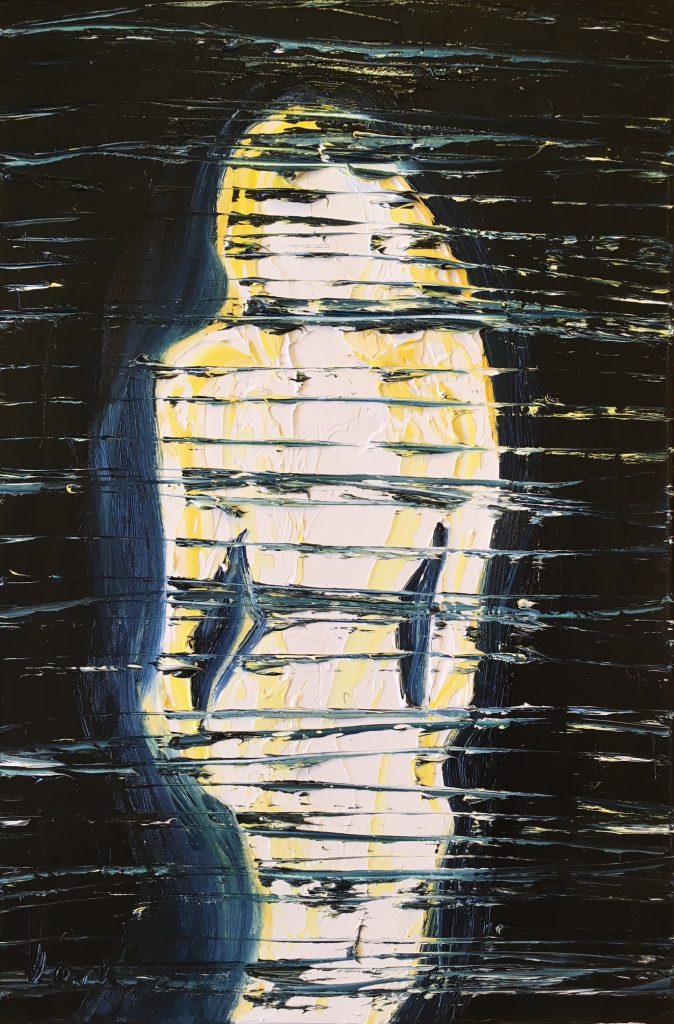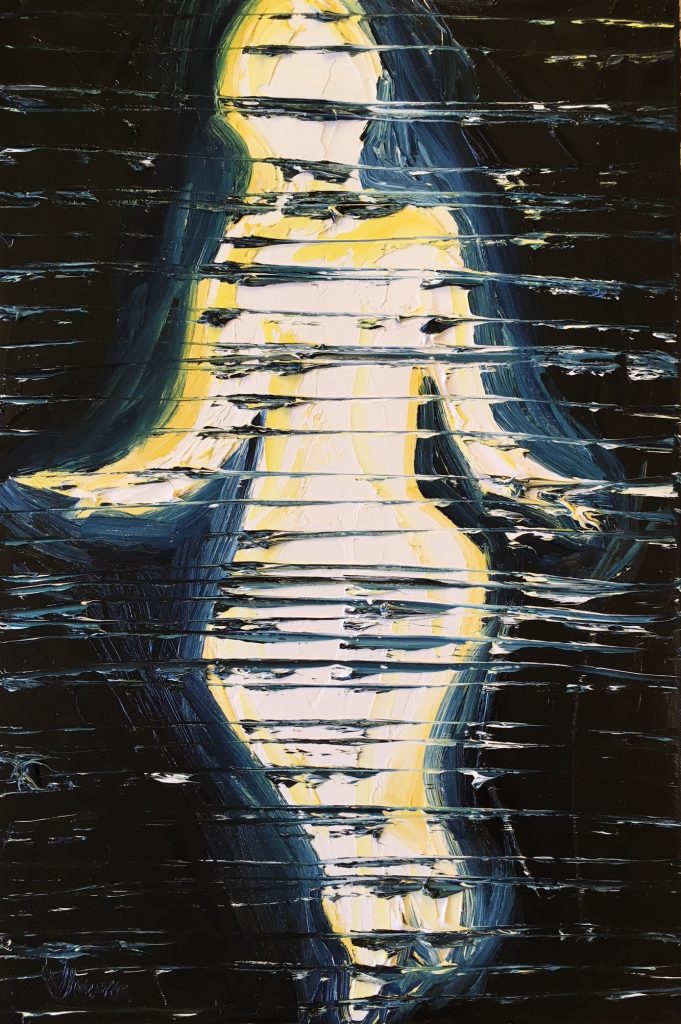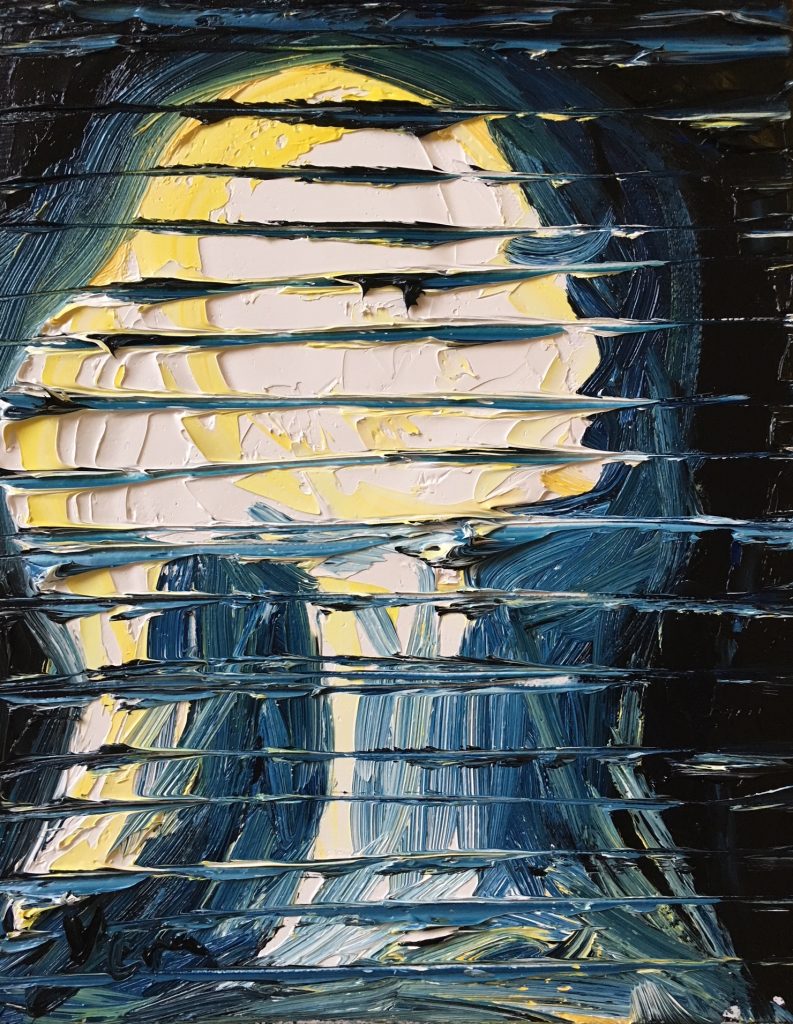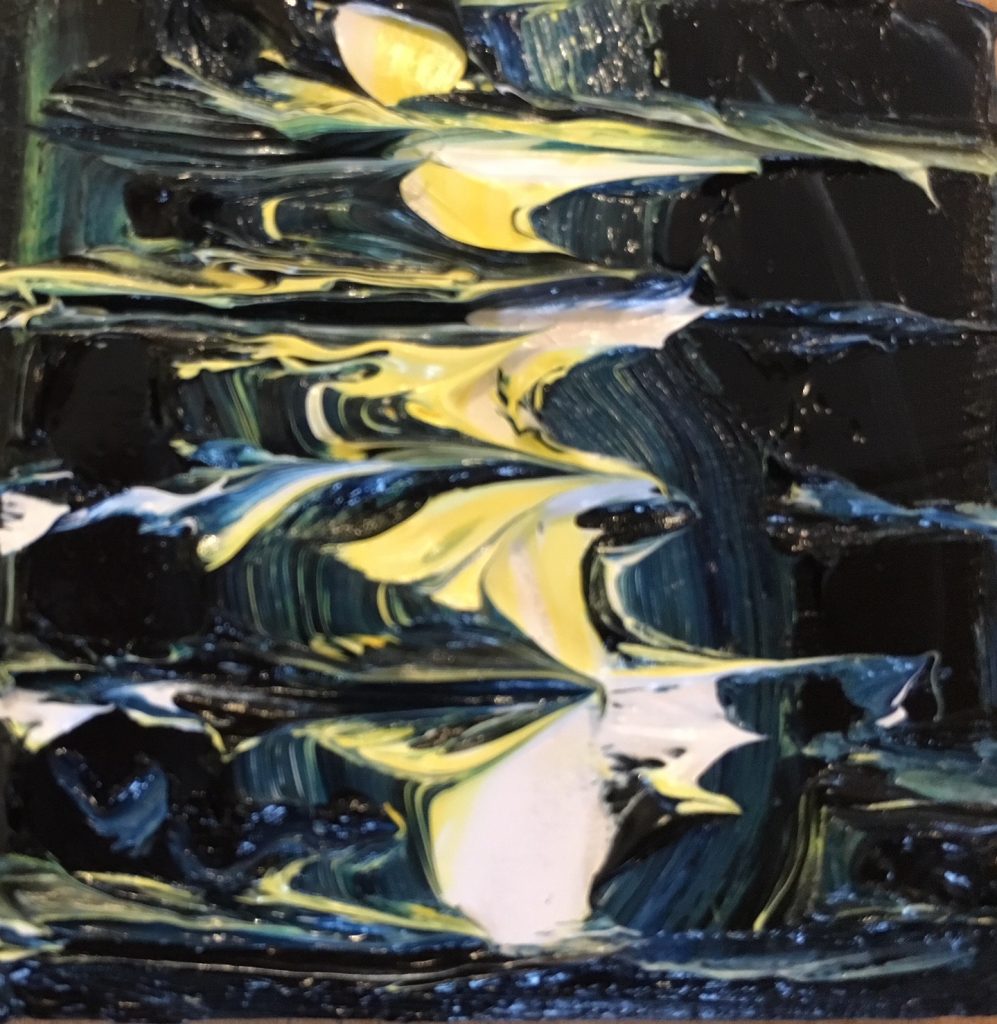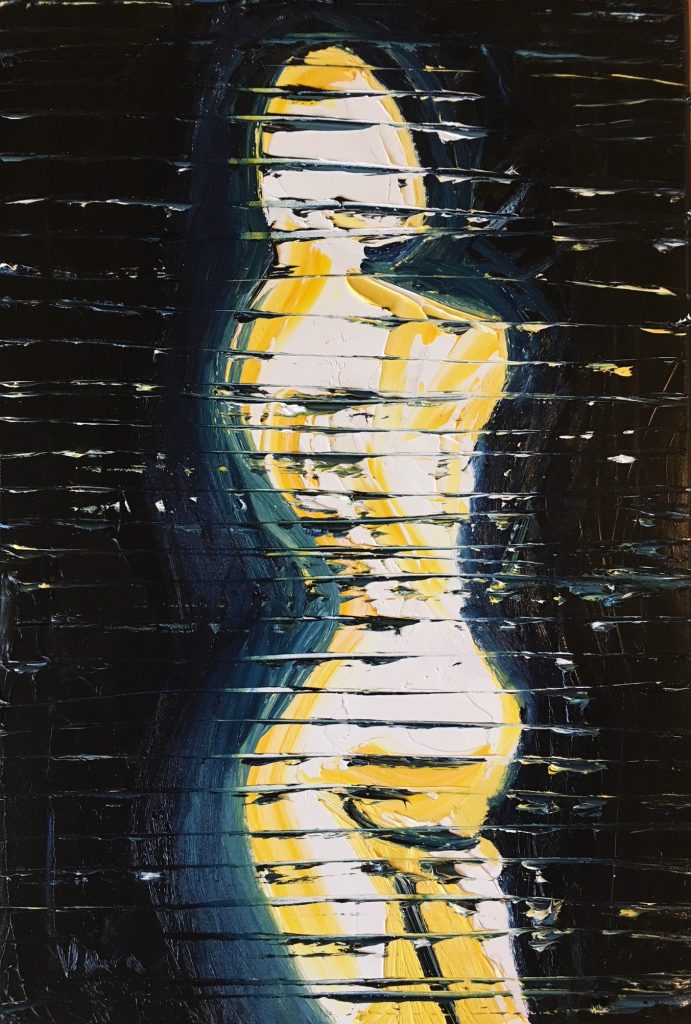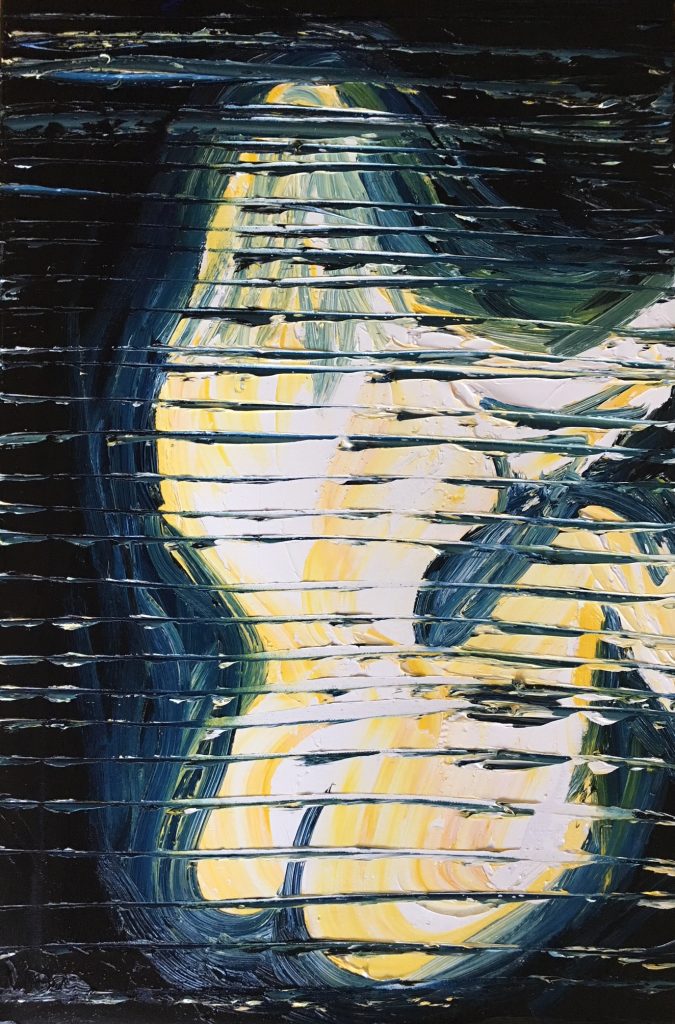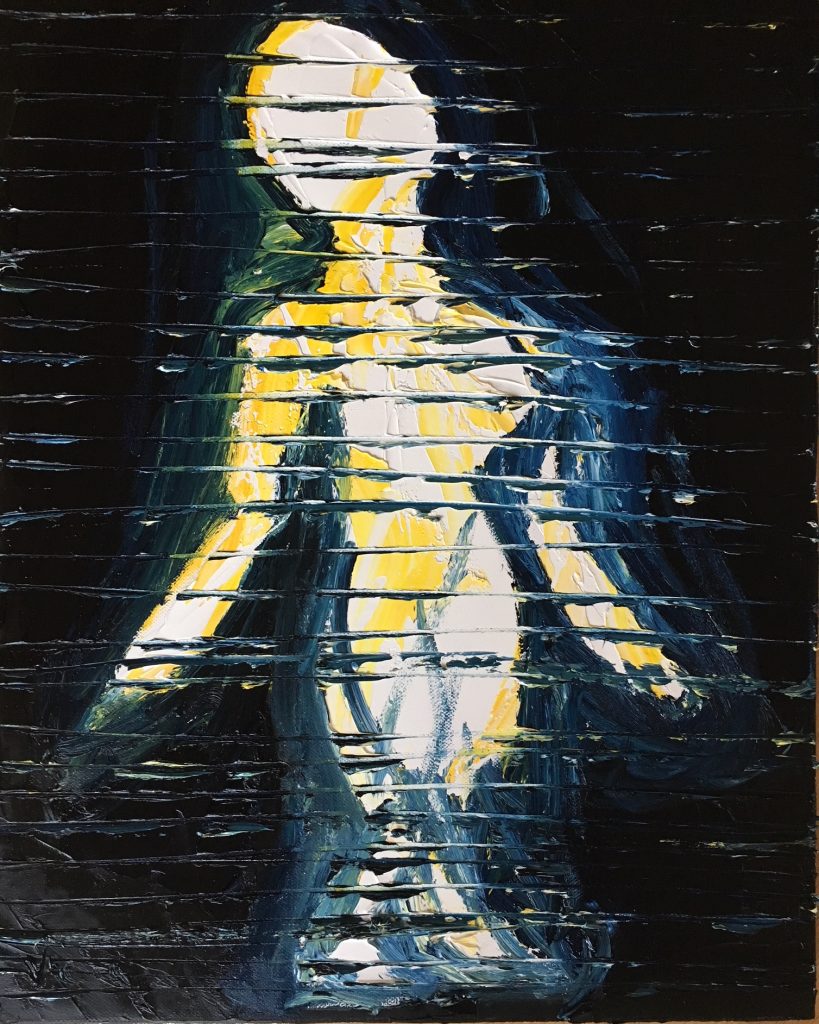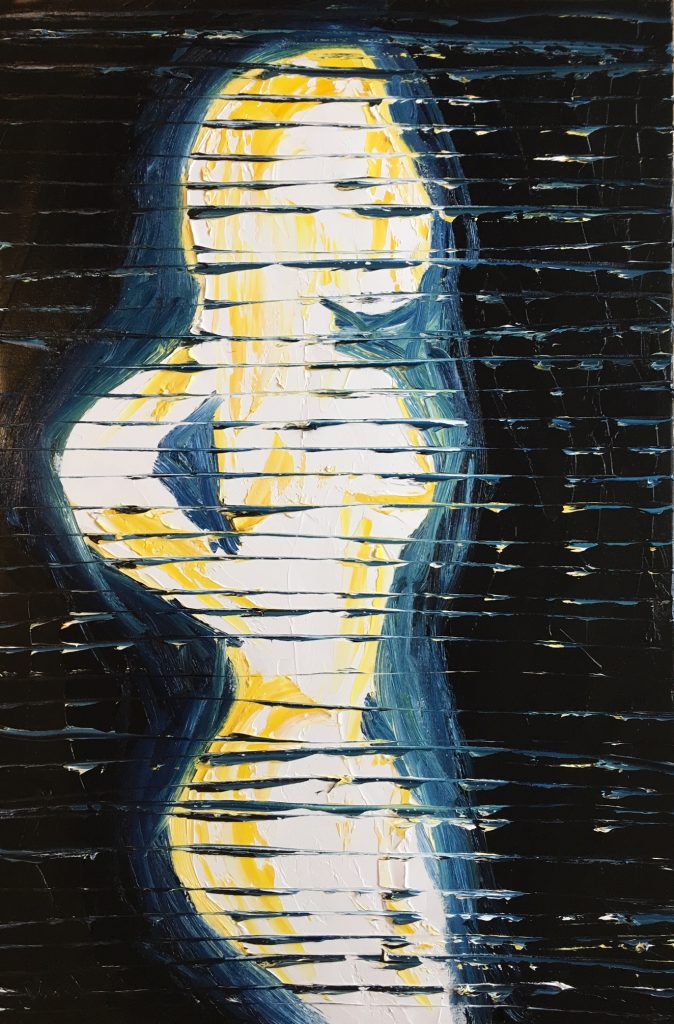Or, “Jane Doe: A Series.” Oils on stretched canvas, various sizes. (One of these is rather large, three are varying degrees of small, and most are 40 x 60 cm or 40 x 50 cm. My big ruler has gone missing. And this should really be photographed all together on a wall for scale, but not today.)
***
If you’re one of those people who prefers to make up your own stories about art—respect—stop reading.
***
This painting series title comes from an investigative series on polygraphs to which I contributed in 2012, from a report of disturbing abuse. Before it was said, I helped make this report public.
She was one of the brightest students at a leading university when the Central Intelligence Agency offered her a job as a counter-terrorism analyst. But first, the 19-year-old was warned, she had to undergo a polygraph test to determine whether she could be trusted.
Instead of scrutinizing her ability to guard government secrets, polygraphers asked about her reported rape and miscarriage, the woman recalled. Over at least eight hours in three separate sessions, polygraphers repeatedy demanded to know her innermost thoughts, even after she started sobbing in shame.
“At one point, one of the polygraphers said to me, ‘Turn on the light inside so I can see,’ ” said the woman, who asked that her name be withheld. “I was amazed at how creepy and invasive the whole process was.”
Reports like these make one wonder what the incidence is of polygraph abuse. Earlier this week on AltGov2, I published an essay curating recently released interviews about polygraphs that, along with some of my other research, feature in Mark Harris’s latest article in Wired, “The Lie Generator: Inside The Black Mirror World of Polygraph Job Screenings.” As noted there—
In my previous work as a postdoctoral police researcher, I’ve heard police proudly describe how they still use polygraphs against rape victims they don’t believe, even though the 2005 Violence Against Women Act (VAWA) prohibits public officials from making sex offense investigation or prosecution contingent on a victim taking a polygraph test. It’s impossible to know how frequently police continue to use polygraphs on victims and witnesses, including in cases (like rape) or in ways (like contingency) where that is immoral or illegal.
Ultimately, counting the cases may not be as useful as recognizing the broader phenomena of which this seems to be a part…
“On Harassment”
No where to go
no one to tell
this feminism thing
isn’t going so well.
While it may be a very, very good time to be a woman (in Berlin), it still has its risks. Luckily, risks can be managed… And sometimes even enjoyed.
It will be fun, for example, to plan the launch party for my second poetry book. Even though it’s risky to think it will be done soon; it’s risky to publish it at all. Anyone who makes art knows, when you’re doing it right, it feels really risky. (When you’re doing it right, it still feels really good!)
